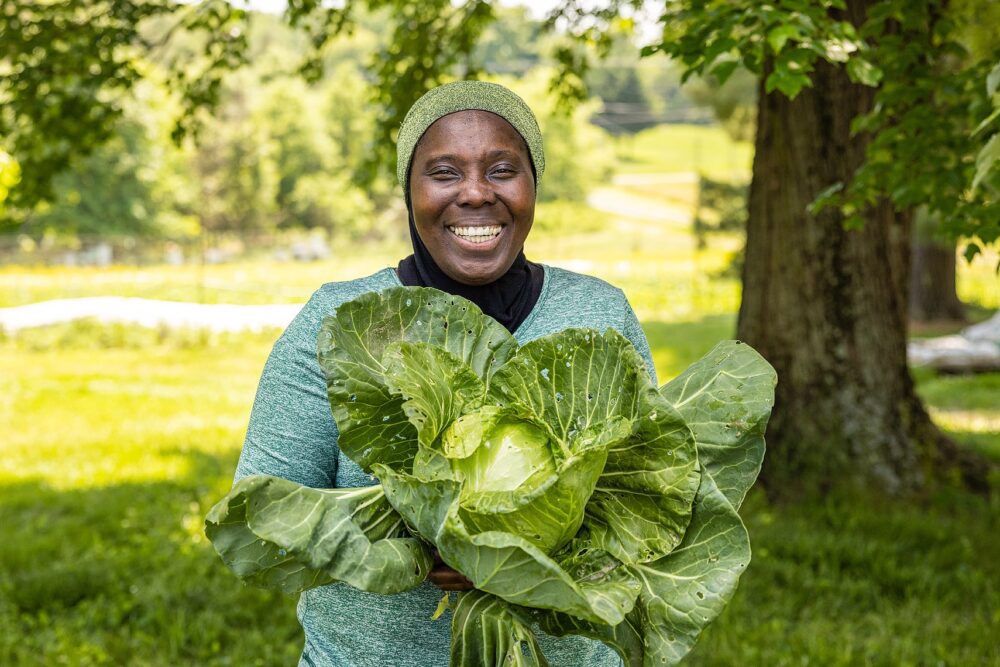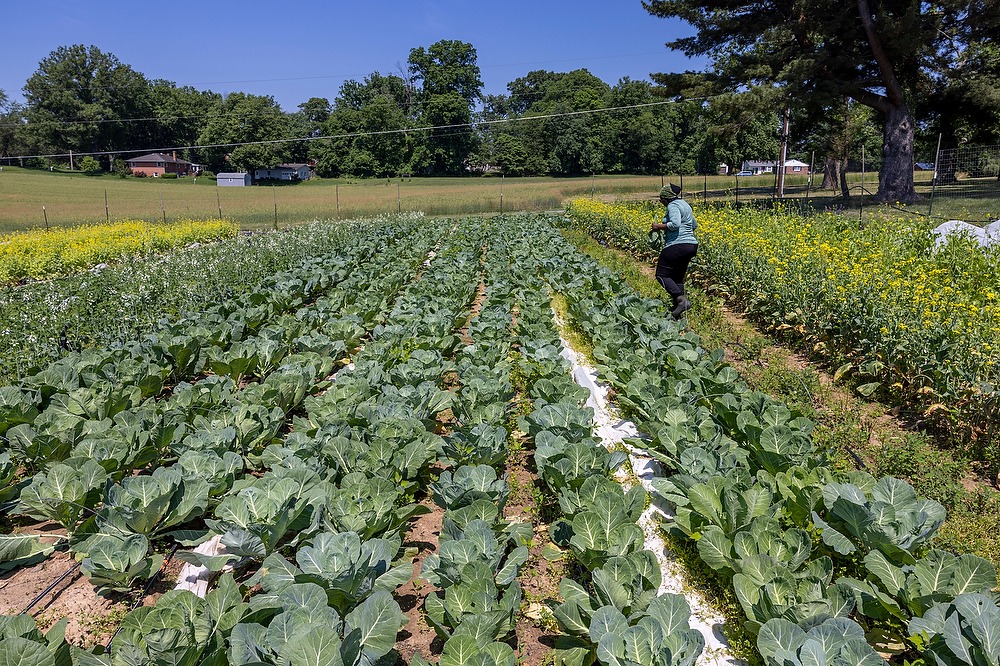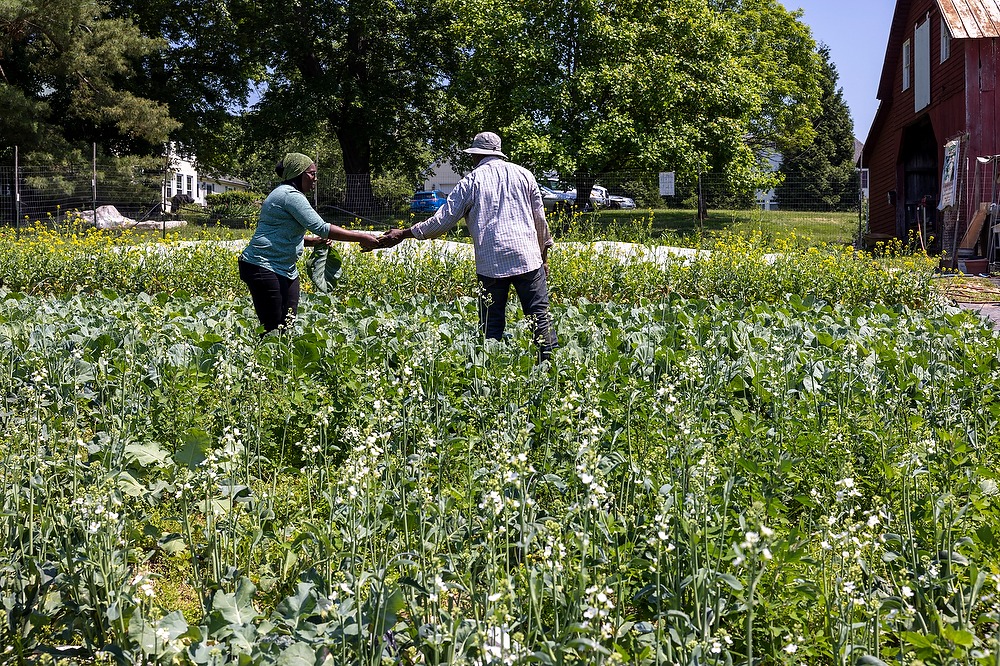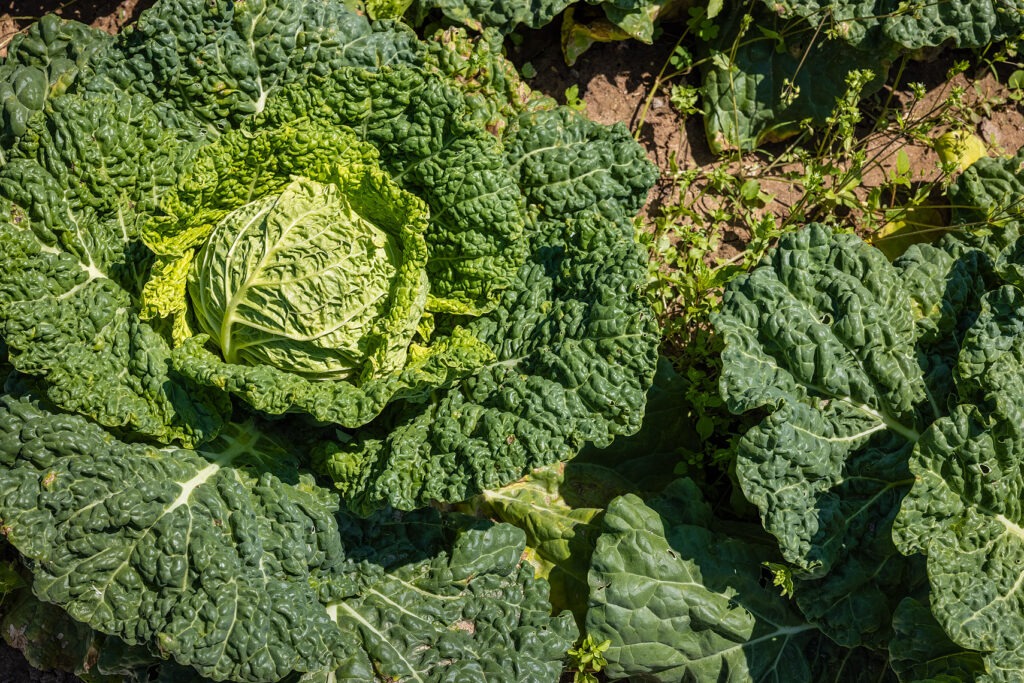Tope Fajingbesi has a consistent standard when it comes to the food that she and her husband, Niyi, distribute from their farm: if any of their produce isn’t of high-enough quality to be sold at a farmers’ market in DC, then it’s not an item that Dodo Farms will sell elsewhere.
For Tope, that standard is about respecting the dignity of her clients, whether they are purchasing produce from her booth at the farmers market in Dupont Circle or receiving produce purchased by the food bank and distributed at one of our partner locations.

“I always tell people when I’m advocating about food security, I say, ‘You can strip somebody of their dignity when you give them food,” Tope says. “If they don’t feel like they have a choice. If you give them things that are soggy or bad.”
“So imagine us being able to restore dignity” by offering fresh, high-quality produce, she says. “It makes me very happy.”
The food bank began working with Tope and Dodo Farms last year as we expanded our network of local farm partners. During 2023, we purchased enough vegetables from the Montgomery County-based farm to provide more than 6,100 meals.

The potatoes, kale, collards, and other items that Dodo Farms delivered to food bank partners and clients during the growing season were typically harvested from the dirt no more than a day before they were delivered – and for an afternoon delivery, the broccoli greens or cabbage might be plucked from the ground that same morning.
The freshness of their produce isn’t just about logistics – Tope says it’s another way to show respect to clients receiving the food.
“We get that feedback a lot that people appreciate that they get fresh foods,” Tope says.
Tope and her husband immigrated from Nigeria, where Niyi also worked as a farmer. They’ve enjoyed introducing Americans to foods they might not be familiar with, like different varieties of kale or other greens that are more common in West Africa.

But they’ve also been excited when they’ve encountered familiarity. Some of the areas they are serving with their produce include African immigrants like themselves.
“We’re very excited to serve that population. It just feels good,” Tope says, recalling how husband returned from a delivery and told her: “I can hear people speaking our language.”
“We want to build community around food, around good food,” she adds.

For six seasons, the couple has been farming on leased land in Montgomery County. They’ve purchased 10 acres of land in Howard County, which Tope says will allow them to expand, both when it comes to the crops they’re growing and the ways they interact with their customers. That includes hosting clients at the farm so they can see how the food there is grown.
“They can feel connected to the land,” she says, adding: “But we can only do this with partners like Capital Area Food Bank.”

